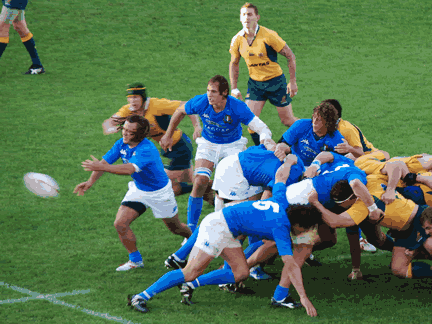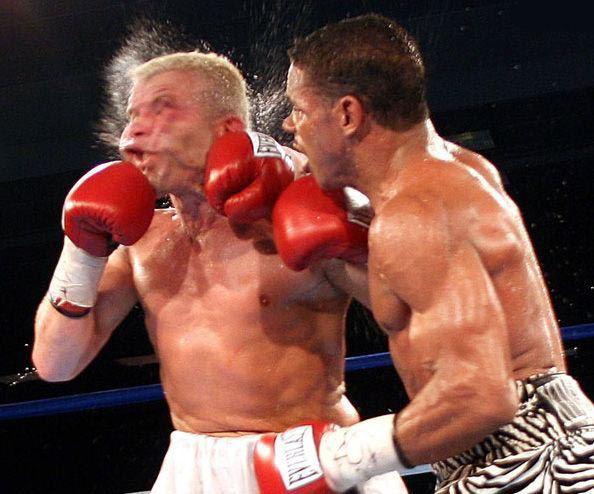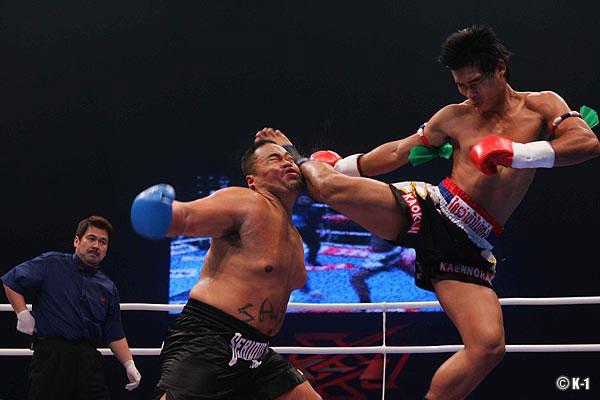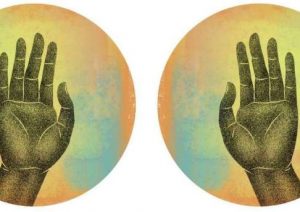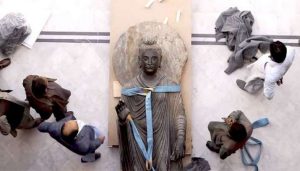Wherever we are in the world it is often impossible to escape hearing about sport. Whether it is about the highs and lows of the current football season, Wimbledon or the Olympics, sport is part of society’s fabric. Football especially demands a large amount of faith and devotion from its fans and their relationship with their favourite team often touches on the religious! For top sportsmen and women religion is often a visible support in the game. Many footballers point to the sky after they score a goal or kiss a crucifix as if to acknowledge that their goal was aided by some divine power. In South-East Asia too, the presence of religion in sport is perhaps best exemplified by the deep religious connections of Thai boxing. In Thailand, boxing is incredibly popular among participants and spectators and it is not uncommon for boxers to be blessed by monks or to even have monks in the audience!
Some may say that this interaction between Buddhism and boxing in Thailand is a “cultural phenomenon”, something that is different from the “true historical Buddhism”, which, as we all know, teaches non-violence. However, when we look at the curriculum of some of the earliest monasteries in ancient India, it is interesting to see the important part wrestling and various other physical activities played in monastic life. It is clear that the historical sangha took care of their bodies and certainly did not shy away from the rough and tumble of contact sports. Therefore, perhaps our understanding on the relationship between Buddhism and sports, especially contact sports, needs to be reassessed.
I feel this is the case especially in Britain. Here, an interest in Buddhism and other forms of spirituality is almost antithetical to an interest in sport. Practitioners of Buddhism in the UK tend to prioritise the mind over the body. They are interested in meditation and the philosophy of Buddhism and sometimes are surprised by the physical activities they are made to do when they visit a monastery, whether it is helping with building work or helping in the monastery kitchen! It would be a surprise to many here to learn of the long historical connection of contact sports and Buddhism. If sport is considered compatible, sports that demand the use of the intellect, such as chess, are preferred whereas games such as rugby or American football are considered too violent.
I do not wish to sound like I am recommending we all take up boxing as part of our Buddhist practice! I am simply questioning the value of obsessively protecting our bodies from all harm and the value of the often extreme interpretations of non-violence in Buddhism as it is practised by Westerners in the UK. For instance, once, when I was visiting a monastery, I saw a monk criticising a lay person for playing rugby in his spare time on the basis that it was a violent sport. However, I am not sure how healthy it is to consider such activities as violent simply because there is forceful contact between bodies.
Certainly, playing these sports often needs a certain level of aggression and competitiveness that is potentially detrimental to maintaining mindfulness and a compassionate lifestyle. However, at the same time it provides an outlet for these emotions and can teach someone how to convert their aggression into something fun and fulfilling. If people choose to play rugby together, and to be tackled, squashed, kicked and thrown around, can this be classed as violence and therefore immoral? Or should we be more realistic and open minded about what “harm” actually is and take the players’ word for it that they have a lot of fun. I have certainly not made up my mind yet. By all accounts, the Buddha was a great wrestler during his youth in the palace and so I am sure he would have had something interesting to say!


